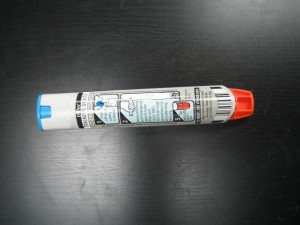An individual who is allergic to almond butter might end up with a reaction. It is important to note that tree nuts including almonds are one of the main causes of near-deadly or fatal food reactions.
It is recommended to avoid all tree nuts as well as peanuts due to the high risk for cross-contamination. Almonds has also been associated to allergies to some tree pollen and fruits since they are members of the same family.
What are the causes?

If an individual is highly sensitive, the body overly reacts to the protein in almonds. Histamine and immunoglobulin E are produced.
Allergies often develop among children but some outgrow them by reaching the age of 6 years. Even though almonds are classified as tree nuts, they are included in the Rosaceae family of fruits that includes peaches, apples, apricots and pears. One is likely to be allergic if a family member has the allergy.
Indications
The indications generally arise right after consuming almonds or almond butter. The usual indications include:
- Sneezing
- Skin rash
- Wheezing
- Itchy, watery eyes
- Runny or stuffed nose
- Nausea and/or vomiting
- Abdominal cramping
- Diarrhea
In some instances, a severe reaction or anaphylaxis might occur. In case the throat becomes swollen and there is difficulty breathing along with an abrupt drop in the blood pressure or rapid weak pulse, seek immediate medical care.
Management of allergy to almond butter
For mild to moderate symptoms, it is managed with prescription or over-the-counter antihistamines. If one is at risk for anaphylaxis, the doctor might recommend an epinephrine auto-injector. This should be carried by the individual always and used at the initial sign of a serious reaction.
Family members and friends should know how to use one. After a shot is given, bring the individual to the nearest emergency department.
